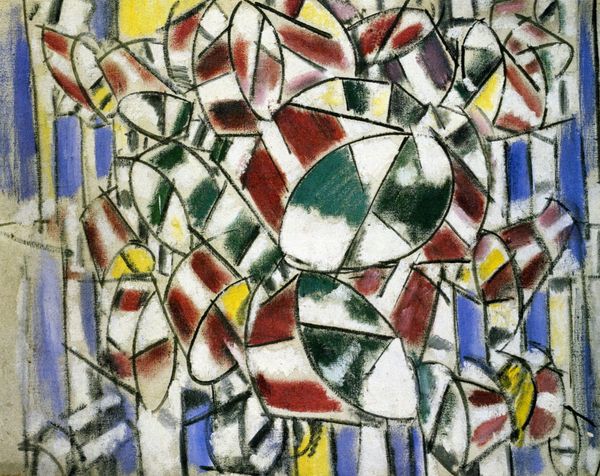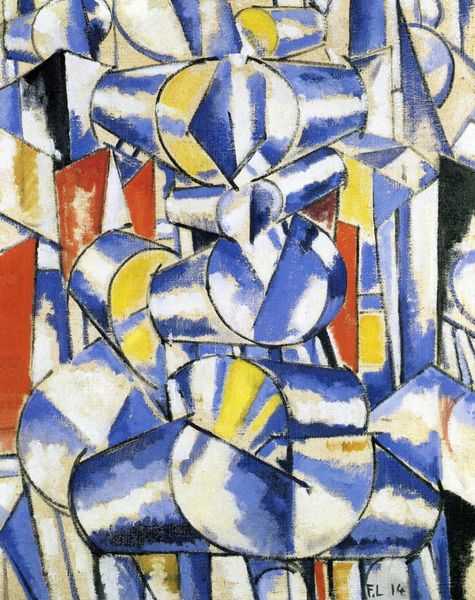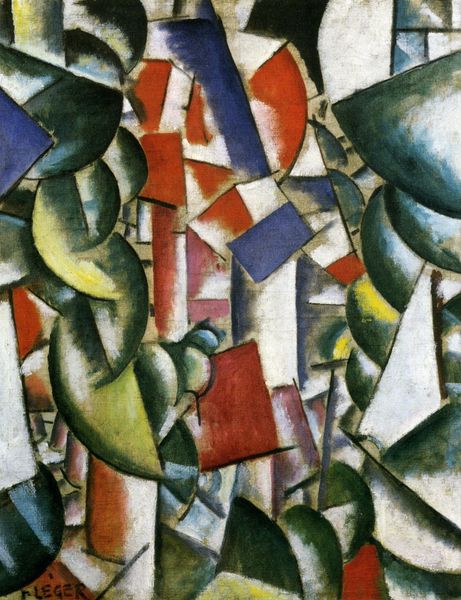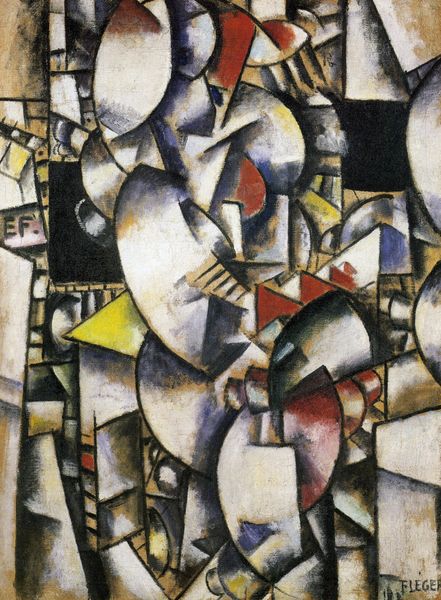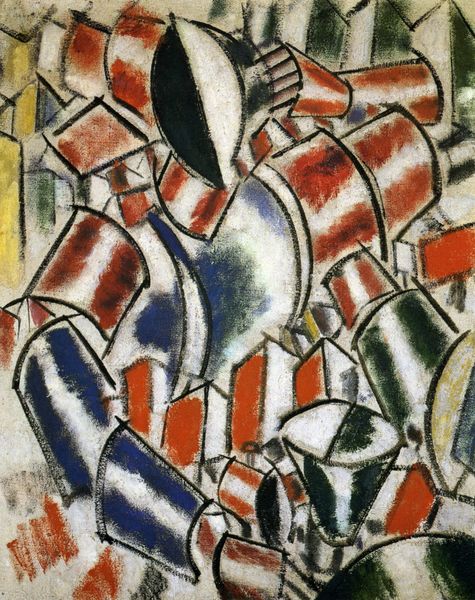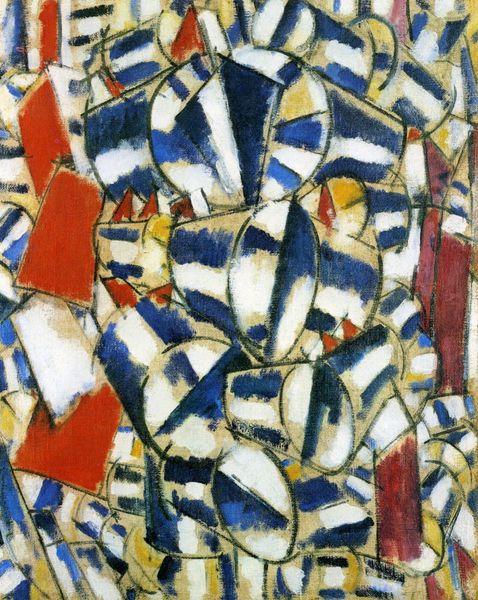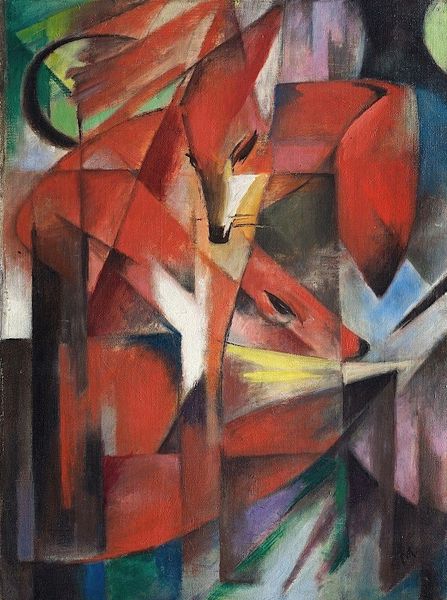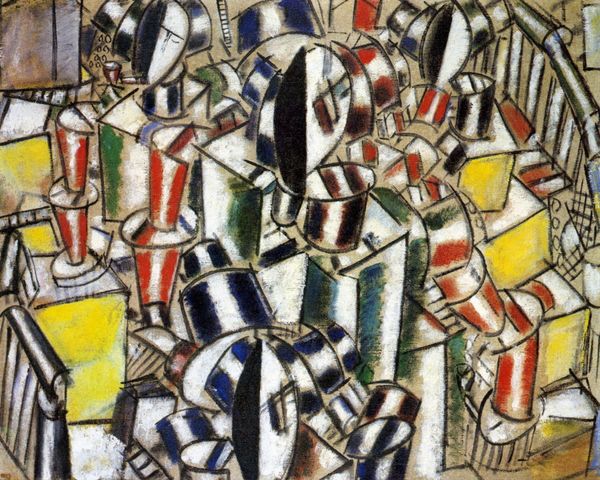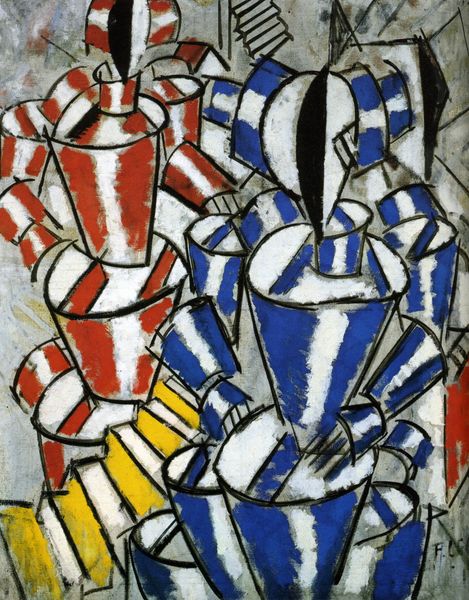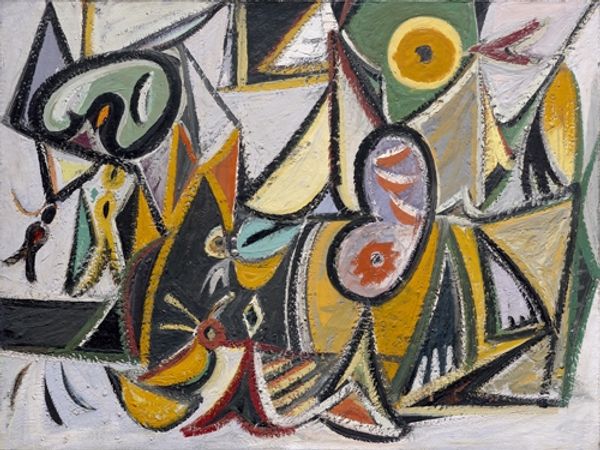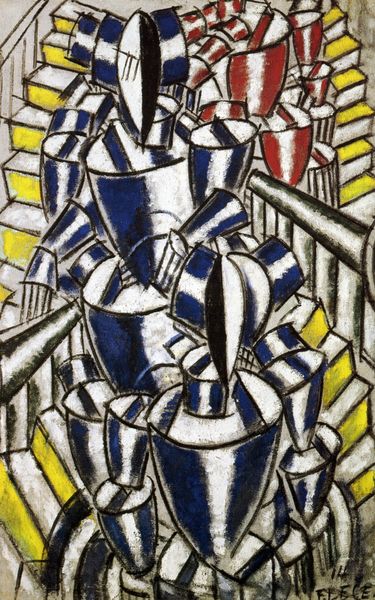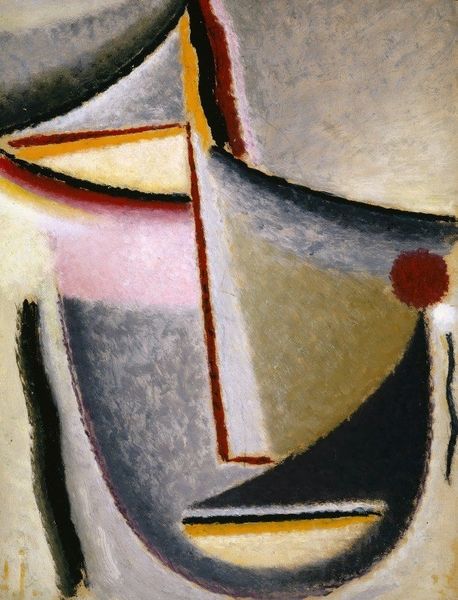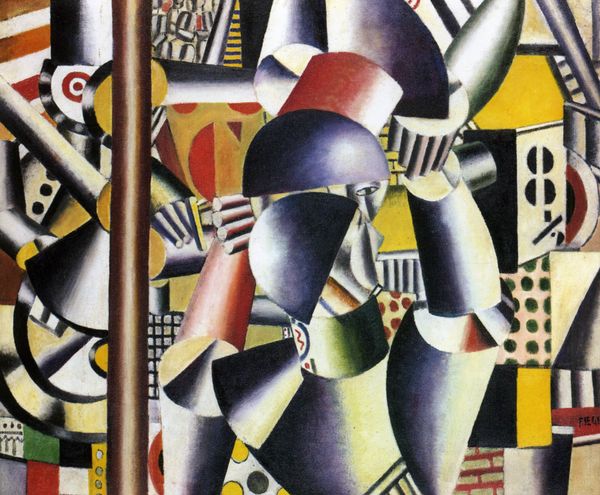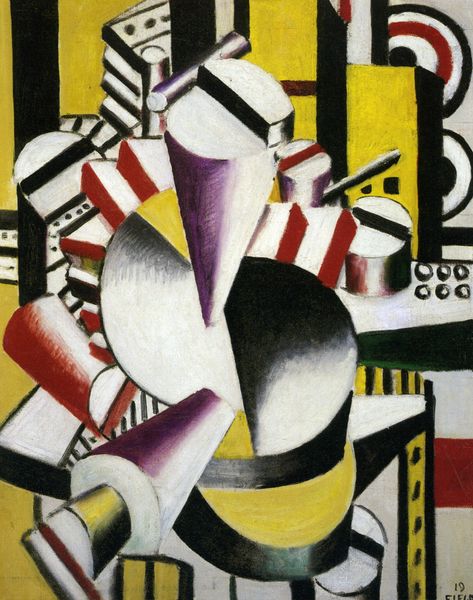
painting, oil-paint
#
cubism
#
abstract painting
#
painting
#
oil-paint
#
acrylic on canvas
#
street graffiti
#
geometric
#
abstraction
#
painting art
#
modernism
Copyright: Public domain US
Curator: Looking at Fernand Léger's "Contrast of Forms," painted in 1914, I’m immediately struck by how modern it feels even now. All those intersecting planes and cylindrical shapes… it just grabs you. Editor: It’s rather frenetic, isn't it? An exciting chaos, almost. The red, white, and green, fighting against the stark blacks… My first impression is a construction site, utterly deconstructed! Curator: You’ve nailed it! Léger, steeped in early Modernism, was fascinated by the machine age, by cities. The way he breaks down forms to their essence—cylinders, cones, spheres—it’s a language. A mechanical alphabet almost. Editor: Indeed. He creates a sense of depth through layering and the strategic placement of color. See how the darker tones push back while the vibrant reds and greens advance. The lack of traditional perspective actually forces the eye to keep moving, exploring the composition. Curator: He loved playing with contrasts—form and color, light and shadow. This isn’t just representation; it's an emotional experience. It's Léger grappling with a changing world, feeling the energy of industry, and then… splattering it all on the canvas for us to try to unscramble. Editor: Do you think the emotional punch lands so strongly, despite the apparent abstraction, through this stark arrangement? Is that also because this wasn't just some pretty pattern. This was made on the cusp of a war, perhaps reflecting anxieties even he may not have realised he was externalizing? Curator: Absolutely. There is that visceral feel, you know? Despite his clean forms, there's an underlying current, almost...aggressive! This isn't serene geometry. Editor: Well said. What starts as an abstract puzzle reveals a depth of feeling, reflecting anxieties perhaps unknowingly exposed during such turbulent times. A fascinating work of art! Curator: I find, revisiting Léger, a newfound appreciation for his raw emotion. It's not just about deconstructing objects, but reflecting something so fundamentally, compellingly human in it all.
Comments
No comments
Be the first to comment and join the conversation on the ultimate creative platform.
